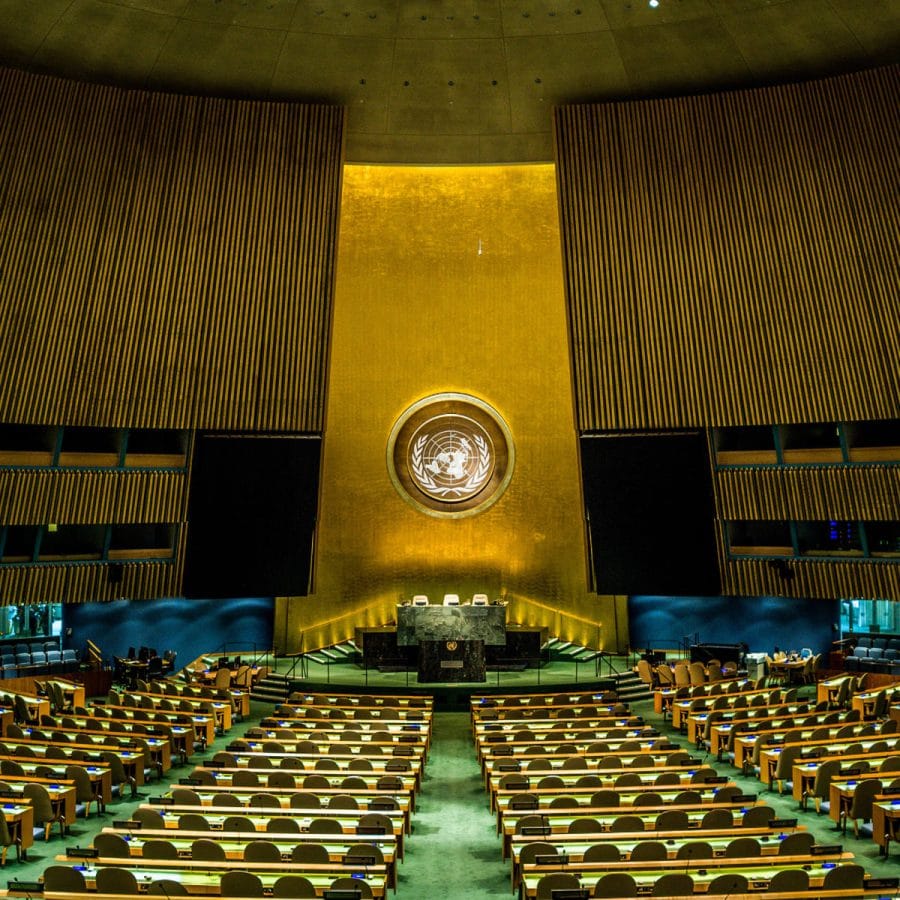EU stands ready to continue supporting Afghan people: Skoog
At the United Nations General Assembly meeting held on November 10 on Afghanistan, several attendees criticized the policy that keeps Afghan women and girls from education and the workplace, highlighting that Afghanistan is the only country where girls are banned from going to school. The attendees reiterated that such a policy severely stunts development within the country.
The representative of the United States said that the Islamic Emirate must allow women and girls to return to their place in Afghan society if the authorities hope to be recognized.
Meanwhile, General Assembly president Csaba Kőrösi called on the Islamic Emirate to engage in serious counter-terrorism dialogue and stop the flow of foreign extremists into the country.
He also said that as the winter sits in, the United Nations humanitarian appeal for Afghanistan is only half funded.
The General Assembly expressed deep concern over the persistent violence, dire economic and humanitarian situation and the presence of terrorist groups as well as abuse of human rights in Afghanistan.
The General Assembly strongly urged an investigation of the allegations of human rights abuses in Afghanistan.
Speakers at the meeting expressed grave concern that millions of Afghanistan citizens face emergency levels of food insecurity and urged the Islamic Emirate to ensure the security of humanitarian workers.
Nasser Ahmad Faiq, the charge d’affaires of the Afghan permanent mission at the UN, said that the failure to establish a legitimate and inclusive government in Afghanistan has isolated the country from the international community.
After the takeover by the Taliban in August 2021, Afghanistan has witnessed an increasing number of socioeconomic and humanitarian crises, which has led to the collapse of two decades of hard-won gains.
The General Assembly adopted a wide-ranging resolution with 116 votes in favor and no countries against.
A number of the delegations called the resolution biased and unbalanced.
Iran’s representative expressed disappointment that the text failed to refer to the role of foreign military intervention as well as the irresponsible withdrawal of foreign forces from Afghanistan.
The representative of the Russian Federation said that instead of an honest and objective process which considers all positions, his Western colleagues engaged in “backroom games and manipulation” to remove from the text any references to the investigations into the Western coalition’s military crimes in Afghanistan.
The illicit opium cultivation and drug production and trafficking were discussed, as was the importance of keeping channels of communication open with the Islamic Emirate.
In reaction to the UNGA meeting, Suhail Shaheen, head of the Islamic Emirate’s political office in Doha, said the Islamic Emirate is committed to respecting the rights and demands of the people, based on Islamic values.
“We are pledged to the rights and legal demands of our people and work to achieve this goal,” said Shaheen.
Meanwhile, BJÖRN OLOF SKOOG, the EU ambassador to the United Nations, said that the EU is committed to lasting peace and calm in Afghanistan during the 77th session of the United Nations General Assembly.
SKOOG added that Afghanistan is facing a deep economic and economic crisis and it is predicted that the situation will worsen in the upcoming winter.
“Afghanistan faces also a deep humanitarian and economic crisis. The situation is expected to deteriorate further during the upcoming winter. In the absence of a legitimate and recognized Afghan government, the EU has been working tirelessly with the international community to defined principled pragmatic and creative solutions to support the Afghan people, and mitigate the grave humanitarian and economic crisis,” SKOOG said.
According to the EU ambassador to the United Nations: “Sustainable peace in Afghanistan requires an inclusive political process with the full, equal and meaningful participation of all Afghans, including all ethnic groups and religious minorities and the meaningful participation of women in decision-making positions.”
At the UNGA plenary, the representatives of a number of countries including Germany, Russia and Iran have expressed their concerns about the economic and human situation in Afghanistan.
While speaking at the session, Antje Leendertse, German ambassador at the UN, expressed concerns over the situation in Afghanistan, saying: “We witnessed a massive economic contraction and humanitarian crisis, half of the population is subjected to critical levels of food insecurity.”
Meanwhile, the charge d’affaires of the Afghan permanent mission at the UN, Naseer Ahmad Faiq emphasizes the cooperation of the international community with Afghanistan at UNGA.—Tolonews










